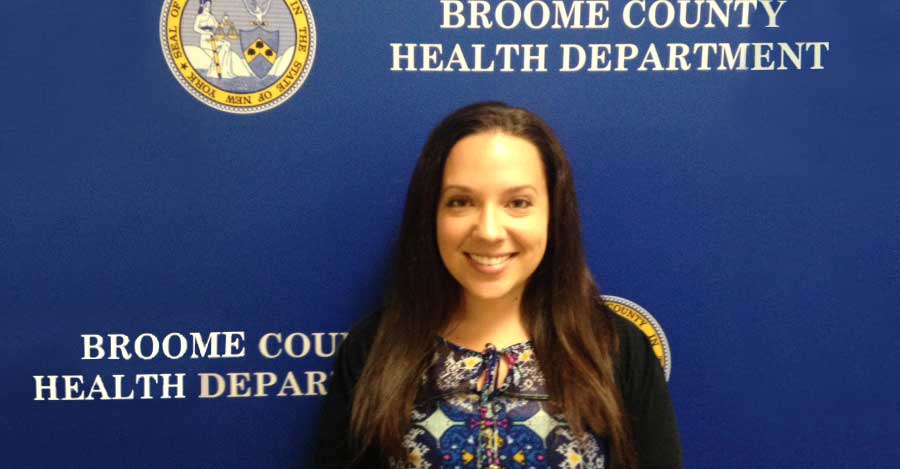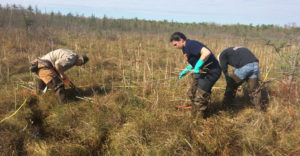
Traditional degree programs and on-campus classes don’t work for everyone. This was the case for Aimee Grace, a Binghamton University alumna who discovered that she wanted to pursue a master’s degree, but couldn’t commit to a rigid class schedule due to her work responsibilities. Open SUNY provided Grace with a different option: online classes that she could complete in her own time, while still being able to keep her work routine.
Grace graduated Binghamton in 2011 with a BA in English and Rhetoric, going on to work in the fields of teaching and advertising until she eventually realized her passion laid in public health.
“I was drawn to this field by my interest in the child hunger and obesity crisis that our country is currently facing,” Grace said. “I have always wanted to be in a position where I can help others, and I knew that this work would be extremely rewarding.”
She decided UAlbany‘s Master of Public Health program was the right one for her. At the time, however, Grace was working unpredictable hours at her job, and was living two hours away in Binghamton. Many students run into obstacles like this—that’s why Open SUNY offers 12,000 online sections from all 64 SUNY campuses, with several degree programs fully online, like Grace’s MPH program.
After completing her Master’s in Public Health, Grace began an internship at the Broome County Health Department in Binghamton, where she now works full-time on the Creating Healthy Schools and Communities grant. “It feels incredibly rewarding to have a career where I am doing the work that inspired me to get my MPH in the first place,” Grace said of her new position.
Grace said that her experience with the online MPH program was a rewarding one, and one that she has already recommended to coworkers who are considering going back to school. Online schooling can be particularly advantageous for full-time workers and those who enjoy control over their routine. Grace pointed out, “An online plan of study allows the student to have a flexible course schedule that can fit with many work schedules, and it also has the potential to increase motivation and strive for greater independence.”
Grace liked that while the online program afforded flexibility, “The deadlines and requirements within each class helped motivate me to adequately manage my time.” There was just enough structure to her schedule—her professors held her accountable through class discussions, which she said were a highlight of the online class experience.
“One of the cons of on-campus classes was the feeling that I was just another nameless student—this was especially prominent in my large lecture classes. The direct communication in the online program completely eliminated this issue for me,” she said.
Personal Support Delivered Online
Online discussions, Grace said, gave the classes a personal touch. They helped her better get to know her classmates and enhanced her understanding of course material.
The one downside for Grace was the inability to get an in-person explanation of more difficult subjects from professors. Although her professors were willing to help students work through subject material via phone or FaceTime calls, Grace still missed the face-to-face aspect an on-campus class affords.
Still, human connections can be invaluable resources, even over the Internet. Grace cited her advisor, Brenda Kirkwood, as “one of the greatest support systems” she had through her MPH career. Not only did Kirkwood help Grace through the nitty-gritty of how to register for classes or plan her path of study, she also guided her to her internship at the Broome County Health Department where she landed a full-time position.
Online classes, Grace said, are great for those who can manage their own education: “You do need a certain level of self-discipline in order to complete assignments and stick to the lectures, readings, and study schedules.” Although you may not be physically present in a classroom, your mental presence will determine your success.
For Grace, her MPH experience has had a great impact—not just on her career, but on her outlook on life.
“By expanding my knowledge of public health crises that affect various regions of the world, it allowed me to shift my perspective and become a more compassionate person… The knowledge that I have gained throughout my MPH career has forever changed my perspective on public health matters.”



